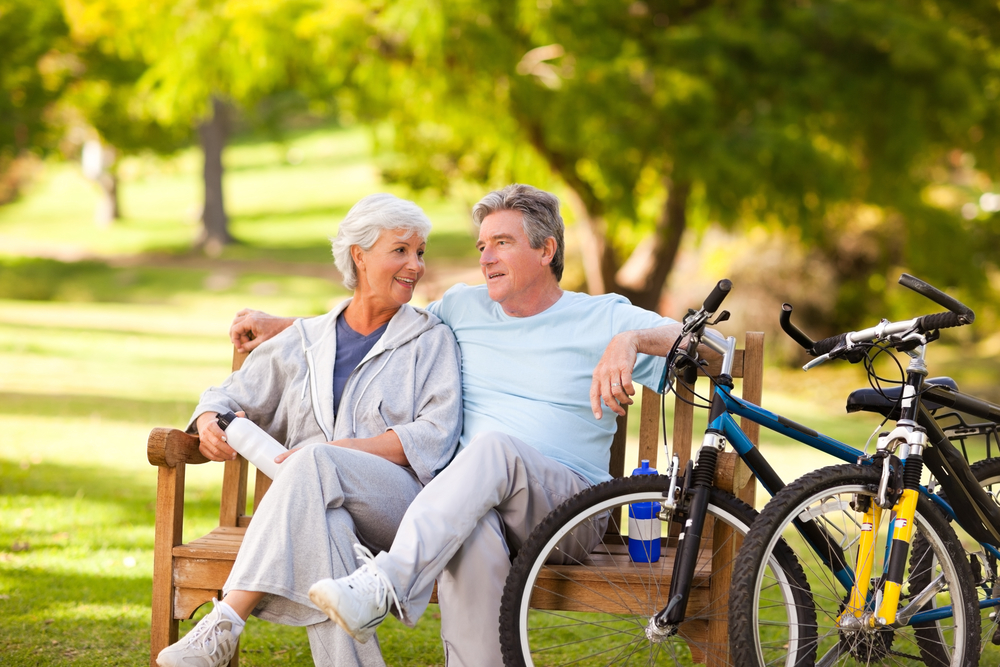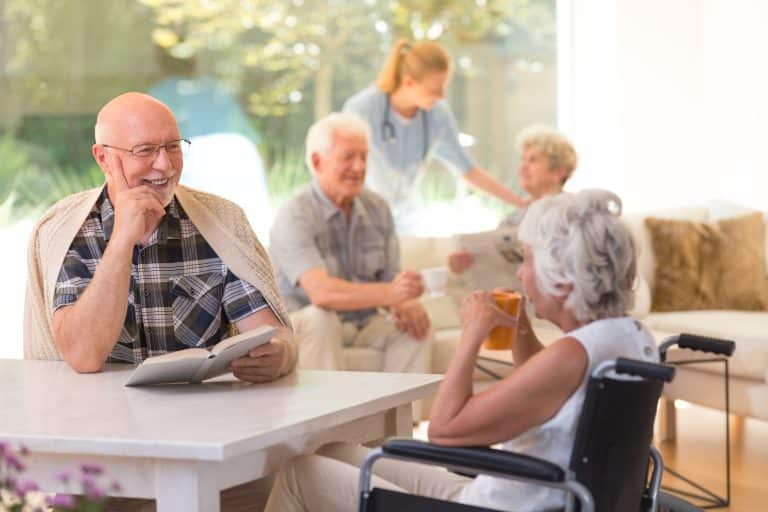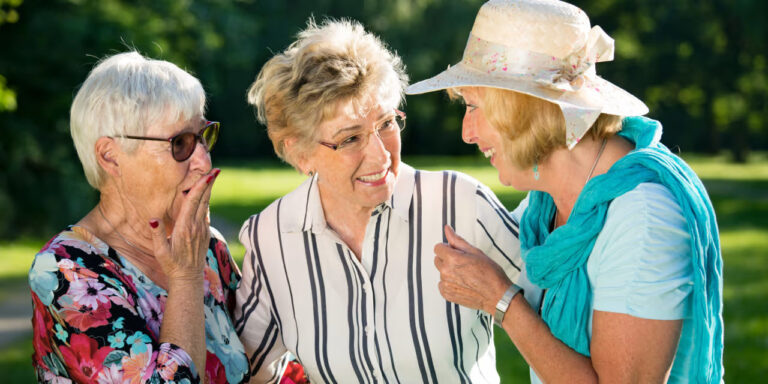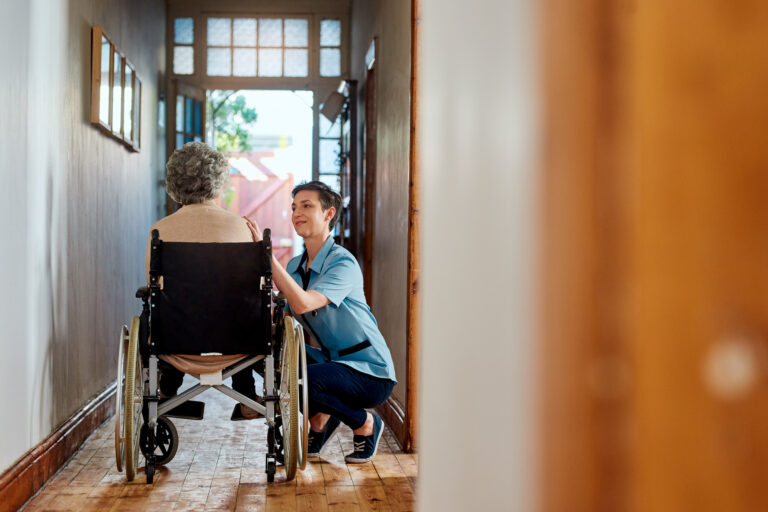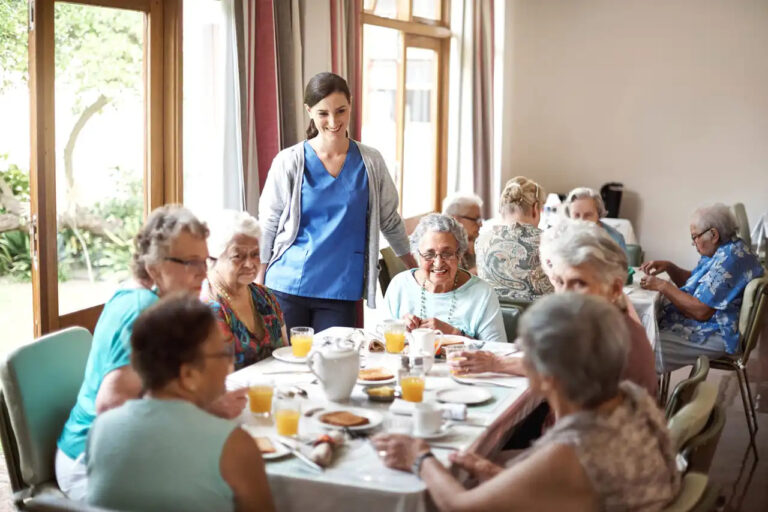Outdoor Activities for Seniors in Assisted Living: A Guide
Venturing into the open air unlocks a treasure trove of advantages, particularly enriching the lives of elders residing in supportive communities. Engaging in Outdoor Activities for Seniors in Assisted Living isn’t just about soaking up the sun; it’s a gateway to improved physical health, mental clarity, and social connections. This article peels back the layers of activities that bring joy and vitality to older adults’ lives.
Exploring gentle activities such as pickleball, we’ll also discover the healing benefits of gardening and illustrate how advancements in technology can amplify the joys of capturing nature through photography. Moreover, we’re compiling a list of springtime pursuits ideal for immersing oneself in the evolving tapestry of nature during March, all in pursuit of a healthy heart and healthy mind.
From boosting muscle strength to reducing high blood pressure—and not forgetting the joys of bird watching—there’s something here for every senior wanting more from their daily routine, including Outdoor Activities for Seniors in Assisted Living.
Table of Contents:
- Engaging in Physical Outdoor Activities
- Mental Stimulation Through Outdoor Activities
- Social Engagement in the Great Outdoors
- Seasonal Outdoor Activities for March
- Adapted Outdoor Activities for Limited Mobility
- Incorporating Technology in Outdoor Activities
- Health Benefits of Regular Outdoor Engagement
- Conclusion
Engaging in Physical Outdoor Activities
Pickleball – A Fast-Growing Sport Among Seniors
Sweeping across the nation, pickleball has rapidly ascended to become the most swiftly expanding sport in America. Pickleball has become the go-to activity for elders in assisted living, offering them a fun yet gentle way to stay fit and connected. Pickleball’s charm stems from its versatility, effortlessly conforming to diverse physical capabilities yet consistently offering a splendid form of gentle exertion.
Pickleball isn’t just about keeping muscles strong; it’s key to remaining vibrant and connected with others. Diving into the game regularly can markedly enhance one’s well-being, diminishing the perils tied to hypertension and a lack of movement. For more insights into the growth of this exciting game, consider exploring how pickleball is making waves among older adults.
Gardening – Cultivating Health and Happiness
Delving into the gardening world opens up a realm beyond mere cultivation of blooms and edibles; it acts as a conduit to enhanced well-being and joy, particularly for elders in assisted living environments. Diving into the world of gardening, seniors find themselves embracing not only a hobby but also an avenue for physical fitness and mental tranquility by intertwining with the natural environment.
Delving into gardening, residents find a gentle but powerful means to keep moving and bond with nature, elevating their day-to-day lives without the demand for intense exertion or burdensome tasks. The therapeutic benefits extend beyond mere enjoyment, aiding individuals by encouraging mental engagement alongside physical activity which contributes significantly towards fighting off ailments like Alzheimer’s disease.
Incorporating such meaningful outdoor activities into life at senior living options brings countless advantages—ranging from improved muscle strength to fostering deeper connections between family members and fellow residents alike because everyone can share these moments. Uncover how gardening elevates moods on this page.
Pickleball and gardening stand out as fun, low-impact ways for seniors in assisted living to stay active and connected. Pickleball brings fast-paced excitement suitable for all fitness levels, while gardening nurtures health and happiness through nature’s touch.
Mental Stimulation Through Outdoor Activities
Keeping the mind sharp and engaged is as crucial as physical fitness, especially for seniors in assisted living. This truth brings outdoor activities into the spotlight not just for their enjoyment but also for their cognitive benefits.
Music Events – Harmonizing Mind and Nature
Merging the serenity of nature with music’s melodious allure weaves a unique symphony that sparks cognitive engagement in the elderly. Outdoor concerts and music events offer more than just entertainment; they serve as a platform for memory care, helping keep the brain actively engaged in recognizing tunes, lyrics, and rhythms. The allure of these events is skyrocketing among elder communities, for good reason.
Delving into mentally invigorating pursuits outdoors, such as relishing tunes or engaging in card games, has been shown to significantly bolster cognitive functions among dementia patients. The fresh air combined with melodic sounds can enhance mood and improve overall mental well-being—a key reason why many assisted living facilities now incorporate such events into their calendars.
To delve deeper into how musical engagements benefit individuals facing Alzheimer’s disease or other forms of dementia,
Delving into this guide reveals enlightening perspectives on the therapeutic power of music for those grappling with memory loss conditions.
In essence, when we harmonize our environment with stimulating sounds under open skies, we’re not just entertaining our seniors; we’re giving them a beautiful blend of natural serenity and cognitive stimulation that resonates deeply within.
Social Engagement in the Great Outdoors
Field Trips – Exploring Together
Nothing beats a good old field trip to bring people together, especially for seniors living in assisted living communities. Stepping outside isn’t merely a change of scenery; it’s a chance to etch enduring moments in our hearts under the sun’s nurturing glow. Venturing out, seniors may find themselves wandering through historical museums, strolling amidst blooming botanical havens, or lending a hand in community endeavors alongside local groups.
The key here is social interaction. When residents of senior living communities embark on these adventures together, they’re not just exploring new sights—they’re also building friendships. The shared experiences help foster a sense of belonging and community among them.
Beyond the fun aspect, these outings offer substantial benefits for older adults’ mental health and overall well-being. Venturing into new surroundings rejuvenates their cognitive functions, a critical aspect of aging gracefully.
Making Connections through Outdoor Activities
Integrating nature-centric pursuits into the everyday agenda of eldercare homes is indispensable, not only for uplifting morale but also for fostering wellness in the elderly populace. Whether it’s joining an outdoor yoga class under the morning sky or enjoying strolls around serene walking paths—these activities are golden opportunities for residents to connect with nature and each other.
An interesting twist? Some senior care centers have started organizing outdoor cooking classes where participants can learn new recipes or perhaps share some of their cherished family dishes—a fantastic way to blend physical activity with cultural exchange.
This approach not only helps keep our beloved seniors physically fit but also encourages mental stimulation through learning something new every day—and let’s face it, who wouldn’t love savoring delicious results after?
Seasonal Outdoor Activities for March
Celebrating Spring with Outdoor Craft Shows
Greet the arrival of spring by participating in neighborhood craft exhibitions, where nature’s beauty meets artistic expression. These events not only give seniors a chance to breathe in the fresh air but also offer an opportunity to admire or create something beautiful. Delving into crafts offers more than mere pastime enjoyment; it serves as a unique medium for self-expression and fosters connections with fellow enthusiasts within the community.
Outdoor craft shows act as special events that cater specifically to those looking forward to celebrating the season’s change. They’re fantastic places for seniors from assisted living communities to gather, enjoy each other’s company, and maybe even pick up a new skill or two.
These events not only nurture our creative spirits but also enhance mental health by encouraging social connections and interactions with the natural world. So grab your sunhat and let’s make some memories under the sky.
Adapted Outdoor Activities for Limited Mobility
Bird watching is one serene activity that doesn’t require strenuous movement but still allows enjoyment of nature’s therapy. It’s accessible enough so everyone, regardless of mobility levels, can participate. Seniors find peace and engage their senses by observing the vivid hues of birds and immersing in their melodious calls, fostering a serene atmosphere.
Birdwatching seamlessly bridges the gap to nature’s wonders, providing a serene interaction that doesn’t require strenuous effort. Moreover, Livestrong suggests chair exercises tailored for elderly people which could complement bird-watching sessions by ensuring participants stay active within their comfort zones.
To further enrich this experience, Alzheimer’s Net highlights stimulating activities that could accompany birdwatching outings—like identifying species or learning about different habitats—to keep minds sharp and engaged.
Adapted Outdoor Activities for Limited Mobility
For seniors in assisted living with limited mobility, enjoying the great outdoors might seem like a challenge. But, there are plenty of accessible outdoor activities that ensure everyone can bask in nature’s beauty without strain.
Bird Watching – Nature’s Therapy
Observing birds transcends merely identifying various species; it embodies a tranquil communion with the environment, tailored to one’s rhythm. Engaging in this tranquil pursuit, one finds solace without the need for vigorous exertion, appealing to those who prefer life’s more peaceful moments. By simply setting up feeders or visiting local parks with accessible paths, residents can immerse themselves in bird watching.
The perks go further than just pleasure; venturing out on picturesque routes to spots known for bird-watching presents a chance to connect with the environment beyond one’s immediate surroundings. With bird guides or apps on hand, identifying different species turns into a fun and educational experience that sparks curiosity and keeps minds active.
To learn more about how this gentle pursuit supports mental well-being while requiring minimal physical effort, check out insights on stimulating activities for Alzheimer’s patients. Additionally, chair exercises tailored for elderly people could complement these leisurely outings by promoting strength and flexibility within safe limits.
In essence, adapted outdoor activities like bird watching paired with scenic drives open doors to enriching experiences. Showing that barriers don’t need to confine our pursuit of happiness and discovery, there’s perpetually a path to deeply engage with the natural world. It’s all about finding what works best and embracing every moment under the sun (or shade).
Incorporating Technology in Outdoor Activities
Photography – Capturing Moments Outdoors
Integrating tech into nature’s embrace, particularly for the elderly in supportive housing, elevates a mere outdoor excursion to a profoundly rewarding journey. Photography emerges as a uniquely approachable and inventive method to realize such enrichment. Photography transcends mere image capturing; it weaves narratives through frozen time.
This activity encourages exploration and creativity among seniors by giving them a tangible connection to their adventures. Whether it’s snapping photos of wildlife during a leisurely stroll through botanical gardens or documenting the joy at outdoor concerts with family members, photography enables seniors to share their experiences with others, fostering connections that are vital for mental well-being.
To get started, assisted living facilities can organize photography outings or even classes focusing on basic skills and techniques. Alzheimer’s.net points out that these pursuits stimulate the mind, aiding those in memory care programs. Furthermore, resources available on Livestrong.com suggest incorporating physical exercise alongside photography walks to enhance muscle strength subtly while reducing high blood pressure risks.
Blending the realms of tech and the natural world via photography transcends mere button-pushing—it opens a gateway for personal articulation and connection with our surroundings, akin to painting with light. For older adults growing older within assisted living communities, these moments of creativity significantly contribute to improving their quality of life by ensuring they stay active both mentally and physically.
Health Benefits of Regular Outdoor Engagement
The great outdoors isn’t just a playground for the young or the adventurous; it’s a vast, open-air health spa for seniors in assisted living. Diving into outdoor activities can significantly impact physical and mental well-being, from reducing high blood pressure to bolstering muscle strength.
Pickleball – A Fast-Growing Sport Among Seniors
Swiftly ascending to the top of America’s favorite pastimes, pickleball is now hailed as the sport that’s expanding at an unprecedented pace among the senior population. Blending the essence of tennis, badminton, and table tennis, this gentle-on-the-bones sport presents a less strenuous alternative. Engaging in regular exercise like pickleball helps maintain muscle strength vital for daily tasks while offering a fun way to stay active. For those who think sports are off-limits as they age, pickleball proves otherwise.
Gardening, a delightful hobby, doubles as a superb mild workout that aids in keeping the elderly spry and lively. Tending to plants requires bending, stretching, and walking around—the perfect combination for maintaining flexibility and stamina. Moreover, engaging with nature through gardening has been shown to enhance mental engagement and happiness levels dramatically.
Mental Stimulation Through Outdoor Activities
Beyond physical benefits, outdoor concerts and music events provide cognitive stimulation crucial for aging minds. The fusion of natural beauty with melodious sounds creates an enriching environment that encourages mental agility—key in combating dementia symptoms among senior citizens.
Fresh air coupled with mentally stimulating games like board or card versions designed specifically for memory care settings can help keep brains sharp.
Conclusion
Partaking in outdoor activities, such as pickleball or gardening, within an assisted living environment, can profoundly transform everyday existence by enhancing both bodily and cognitive wellness. Exploring activities like pickleball and gardening invites a journey toward enhanced health and happiness. Remember, engaging with nature through music events or bird watching enriches the mind. Discovering happiness in life’s harmonies and the effortless beauty of watching nature unfold its wonders.
Social connections flourish outdoors too. Field trips and craft shows not only break the monotony but also knit communities closer together. March brings unique opportunities to embrace spring’s arrival with creativity and camaraderie. And let’s not forget those with limited mobility; scenic drives and bird watching ensure everyone enjoys nature’s splendor.
Utilizing gadgets such as cameras allows the elderly to immortalize their outdoor escapades, weaving tales that linger in memory. To sum up: Staying active outdoors isn’t just beneficial; it’s essential for enhancing our quality of life as we grow older. Embrace these moments under the sun—or clouds—and watch as every day becomes an opportunity for discovery and delight, especially at an assisted living facility in Douglassville.

